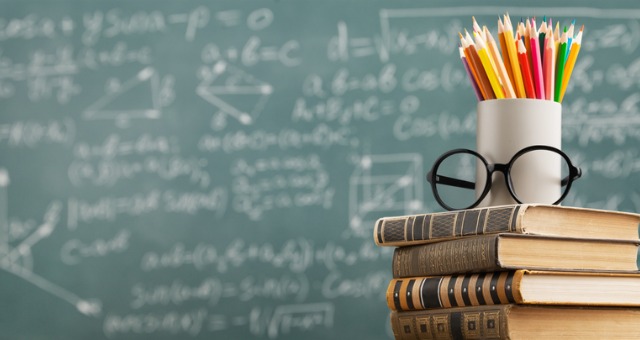
When we talk about student-centered teaching, we often forget to look at our students and the circumstances that influence their learning. In this seminar, we will explore three areas that often overlap in our students’ lives to the detriment of their education. These areas are trauma and resilience/y, systemic oppression, and neurodiversity. As we deepen our understanding of how systemic oppressions can undermine and disrupt successful learning, we will practice facilitation skills, strengthen our working memories, and learn practical activities to establish stability, increase capacity, become appropriately flexible, and create positive communities for our students while accelerating their critical thinking development and academic success.
The Practical Teaching for Resilient Learning seminar will be our guide through theory and practice in a hybrid online format. We will be asked to reflect on readings, discussions, and our own teaching and social justice work as we develop individual teaching and learning projects that support enhanced resiliency and capacity for our students.
Resilient Communications
As we identify ourselves distinctly from one another, practicing communications that are and feel respectful and appreciative can be challenging. Here are a few recommended readings to support resilient communications in our seminar and your classes (and I trust, all aspects of your lives):
- Gender pronouns
- Microagressions
- Racism, Cultural Bias, and Self-Care
- Racism (for those identifying as of color or multiracial)
- Racism (for those identifying as white or mostly white)
- Racism, Cultural Bias, and Self-Care
- Religious Bias
- Sexism
WORKSHOP RESOURCES
- Semester
- Fall 2021
- October 7 session
- November 4 session
- December 9 session
- Workshop recording
- PTRL 12-9-21 Zoom chat
- Jamboard
- Empty outline worksheet (please download or copy rather than edit this template)
- Facilitation Roles/Skills
- Spring 2022
- February 10 session
- March 17 session
- April 14 session (participant-designed and led)
- Fall 2021
Recommended Resources
PTRL Seminar Primary Models for Resilient Learning
The STAR Dynamics
Data and Statistics:
John Jay/CUNY:
John Jay Fact Books (these are usually 12-18 months behind where we are currently)
CUNY Student Data Books (Current & Historical)
Mental Health/Neurodiversity:
Mental Health (National Institute of Mental Health, NIMH)
33 Alarming College Student Mental Health Statistics
Systemic Oppression:
Religious Landscape Study: Adults in New York
New York’s Equality Profile (LGBTQIA statistics)
Trauma (also see October assigned readings)
Statistics (National Coalition Against Domestic Violence)
What Is Complex Post-Traumatic Stress Disorder?
Basic Needs:
Income and Poverty (United States Census)
Rates of Food Insecurity Remain High Despite Expansion of New York City Food Assistance Programs
Testimony of the Status of Hunger in NYC and the Impact of COVID
Student Homelessness and Basic Needs Insecurity
Resilience/Resiliency
Family Resilience: A Framework for Clinical Practice
Ambiguous Loss
John Jay TLC Spotlight PODCASTS IN TRAUMA AND RESILIENCY
Gina Foster on How Understanding Trauma and Resiliency Can Improve Your Teaching
Connecting Processes and Community in Online Courses
Drama, Trauma, and Mayhem: Engaging Students and Faculty with Capacity and Time
“Remember that Your Students Are Human Beings”
Recommended reading on the Resiliency Principles and the STAR Model
The Dynamics of Creative Learning (book chapter on Lehman/CUNY students working with resiliency)
Learning and Resilience
SELF-REGULATED LEARNING STRATEGIES IN RELATION TO ACADEMIC RESILIENCE
Academic Resilience in First-Generation Latina:o Students
Brain development
The neurobiology of childhood trauma and abuse
20 Facts You Must Know about How the Mind Learns
How the Stress of Racism Affects Learning
Learning theory
Mindsets that Promote Resilience
Identity development
Psychoanalysis and Diplomacy Part I: Individual and Large Group Identity
Hitting Home: Irish Identity and Psychotherapy in the UK
Volkan Core Identity 7 Concepts
Trauma
Transmission of trauma
Collective Trauma Transmission and Traumatic Reactions Among Descendants of Armenian Refugees
Collective Trauma
Divides: Students Reflect on Group Conflict (excellent website by and for students on chosen trauma and Vamik Volkan’s work)
Epigenetics
The Epigenetics of Childhood Trauma (Part 1)
The Epigenetics of Childhood Trauma (Part 2)
Trauma and the Body
The Body Keeps the Score: Brain, Mind, and Body in the Healing of Trauma
Understanding a Healing Crisis
Maintaining Your Equilibrium in Tumultuous Times
(2021 John Jay workshop offered by Dr. Peggilee Wupperman, Associate Professor, Psychology)
Neurodiversity
Recent Conversations:
The Me You Can’t See (free episode here on Apple+ tv)
The Criminalization of Mental Illness: Reckonings and Reforms series (Zoom webinars, information here, series is being recorded)
How the Pandemic Is Affecting College Students’ Mental Health
Neurodiversity in the College Setting
Systemic Oppression
Large Group Identity
Large-Group Identity, Large-Group Regression, and Massive Violence
Large Group Identities and Chosen Traumas
Bias and Hate
Education in a Pandemic: The Disparate Effects of Covid-19 on America’s Students
Stamped from the Beginning: The Definitive History of Racist Ideas in America (available at Lloyd Sealy Library)
Caste in America; Isabel Wilkerson with John Dickerson
Glossary for Understanding the Dismantling Structural Racism/Promoting Racial Equity Analysis
Examples of Racial Microaggressions
How Microaggressions Reinforce and Perpetuate Systemic Racism in the United States
The Racial Healing Handbook (available in Kindle edition through Amazon)
Misogyny & Sexism
What’s the Difference between Misogyny and Sexism?
Sexual Violence
About Sexual Violence: Statistics
Preventing and Responding to Campus Sexual Violence
Gender Identity Discrimination
Sexual, Gender, and Bodily Diversity Discrimination
Bias against Other Groups: Sexual Orientation or Gender Identity
Religious Bias/Hatred
A Closer Look at How Religious Restrictions Have Risen around the World
Appendix C: Religious Restrictions Index Scores by Region
Is Religious Intolerance and Discrimination Becoming More Common?
Xenophobia
Immigration, Xenophobia, and Racism
Intersectionality
What Is Intersectionality, and What Does It Have to Do with Me?
Understanding intersectionality is critical to advancing educational equity for all
Displacement
Immigration
Migration, Separation, and Trauma
A lesson in civility: the negativity immigrant students hear
The Mental and Physical Trauma of 750,000 Kids Living in Limbo
Refugee
Internal displacement within a geographical location
Root Shock: How Tearing Up City Neighborhoods Hurts America, and What We Can Do about It (available at Lloyd Sealy Library)


